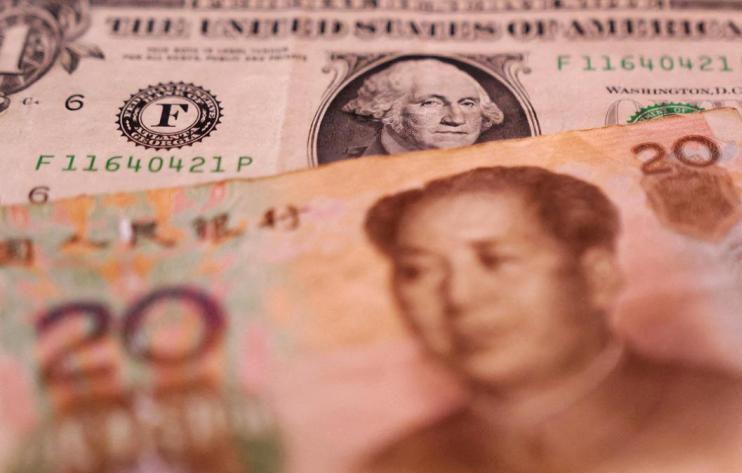
Beijing - China is reportedly considering abandoning its stable exchange rate policy next year and pushing the yuan lower in response to possible punitive trade measures against China under U.S. President-elect Donald Trump.
On Wednesday (December 11), Reuters quoted people familiar with the matter as saying that pushing the yuan down will be the tone of China's exchange rate policy next year. China's central bank is considering allowing the yuan to fall to 7.5 per dollar, about 3.5 per cent weaker than the current rate of around 7.25.
Trump has previously indicated that he will impose a 10 percent tariff on all Chinese goods, and may gradually increase the rate to 60 percent. Pushing the renminbi lower would make Chinese exports cheaper, reducing the impact of tariffs and creating easier monetary conditions for China's domestic market.
The renminbi has fallen almost 4 per cent against the dollar since the end of September. Analysts had expected the yuan to fall to 7.37 against the dollar by the end of next year, but that depended on how far and how fast Trump raised tariffs.
The People's Bank of China keeps a tight grip on the yuan, which is not allowed to move more than 2 per cent from the midpoint set by the central bank. One of the sources said that while the central bank is unlikely to signal a move away from a stable exchange rate policy, it is likely to emphasize letting the market play a bigger role in determining the yuan's exchange rate.
The Politburo meeting on Monday changed the tone of China's 14-year monetary policy from "prudent" to "moderately loose". A Politburo meeting in July called for keeping the yuan's exchange rate "basically stable at a reasonable and balanced level," but that phrase did not appear in the latest Politburo communique.
However, a commentary published Wednesday in the Financial Times, a newspaper run by the central bank, said the yuan's exchange rate "has a solid foundation" to remain basically stable at a reasonable and balanced level, and is likely to stabilize and rise by the end of the year as companies buy more foreign exchange.
The yuan fell under pressure against the dollar on Wednesday, recovering some of its losses after the FT article. Before the market opened on Thursday, the People's Bank of China set the central parity rate at 7.1854, little changed from the previous trading day. As of 7.30pm, the onshore yuan was trading at 7.2673 against the US dollar and the offshore yuan was trading at 7.2730.
'It's not surprising that the Chinese authorities are considering allowing the yuan to depreciate because it's a classic tool to offset the impact of tariffs,' said Wu Rongren, a fixed-income portfolio manager at Eastspring Investments.
Still, Mr. Wu expects a gradual and controlled adjustment of the yuan's exchange rate, rather than a sharp and uncontrolled depreciation that could destabilize financial markets.
Frederic Neumann, chief Asia economist at HSBC, agrees that if China manipulates its currency too aggressively, it could provoke a backlash from other trading partners, which is not in China's interest.

Recently, the International Monetary Fund (IMF) and the Organisation for Economic Co-operation and Development (OECD) both raised their growth forecasts for the global economy and certain economies.
Recently, the International Monetary Fund (IMF) and the Org…
A clear consensus has emerged in Europe's economic sphere: …
Thailand said on Tuesday (December 16) that Cambodia must f…
Official data released on Tuesday (December 16th) showed th…
US President Trump has expanded the list of countries subje…
The Office of the United States Trade Representative said t…